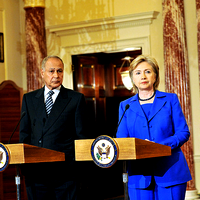Human rights were glaringly absent from U.S. Secretary of State Hillary Clinton's agenda when she recently met with Egyptian Foreign Minister Ahmed Aboul Gheit ahead of Egypt's Nov. 28 parliamentary elections. The silence is noteworthy, given Cairo's suppression of the political opposition in advance of the elections as well as its overall dismal human rights record.
The Obama administration fears that Egyptian President Hosni Mubarak will respond to criticism by withdrawing both political support for the stumbling Israeli-Palestinian peace process and logistical support for U.S. military operations in Afghanistan and Iraq. The administration is also concerned that criticism would boost the Muslim Brotherhood, Egypt's popular Islamist opposition group. Finally, should Egypt simply reject the criticism, it could paint President Barack Obama as too weak to influence one of the United States' closest allies and a major recipient of U.S. aid.
Apparently testing the waters, State Department spokesman P. J. Crowley called on Egypt in a written statement to allow peaceful political gatherings and open media coverage, and to admit international election observers. Egypt immediately rejected the call, saying it has a system of judges and other safeguards in place to monitor the fairness of the elections and that the government has issued guidelines for free and fair media coverage of the campaign.

